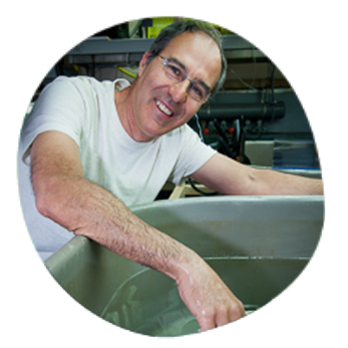
Fabio Badalamenti is Research Director at CNR-IAS and Honorary Professor at Edinburgh University. He received his PhD in Marine Sciences from the University of Messina in 1990. He has extensive national and international experience in coastal zone management and marine ecology, with a strong reputation in trophic ecology and the application of ecological theory to the management of marine ecosystems. He was one of the first to suggest that marine trophic food webs are more complex than previously thought, with some species occupying higher trophic positions than traditionally thought. His recent work describes 'trophic position erosion', a process induced by bottom trawling in which fish of a given size occupy lower trophic positions due to changes in prey availability, highlighting an overlooked phenomenon by which fishing alters food web structure. He has also uncovered two novel predation strategies in marine invertebrates: kleptopredation - where a predator consumes its prey after the prey has acquired food - and protocooperation among polyps of the stony coral Astroides calycularis, which enables them to capture large jellyfish. He also described how the Mediterranean seagrass Posidonia oceanica anchors itself to rocky substrates via adhesive root hairs - an insight that is advancing both early seagrass biology and restoration practices. His current research at the IAS focuses on marine biodiversity, trophic ecology and innovative approaches to ecosystem restoration.

